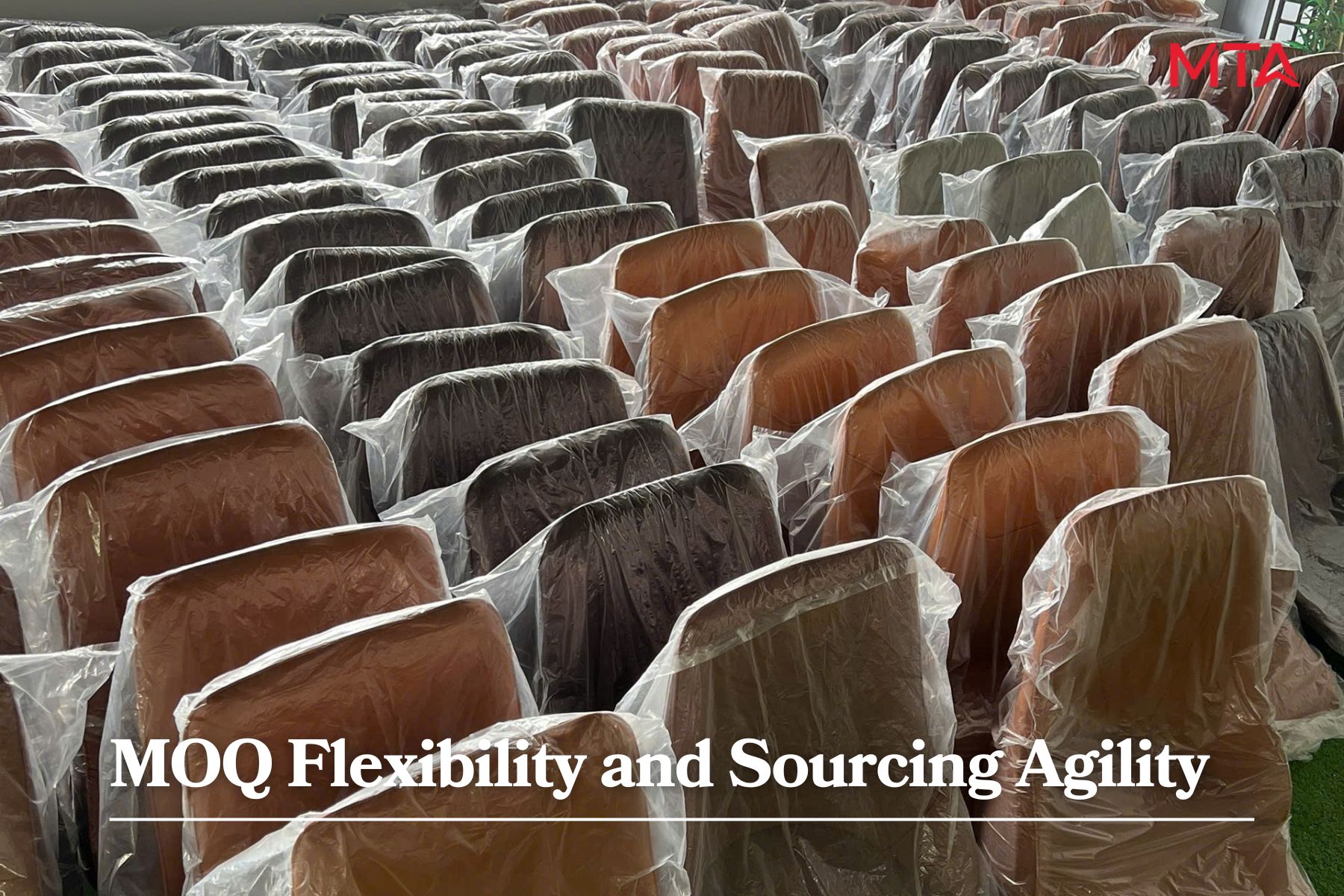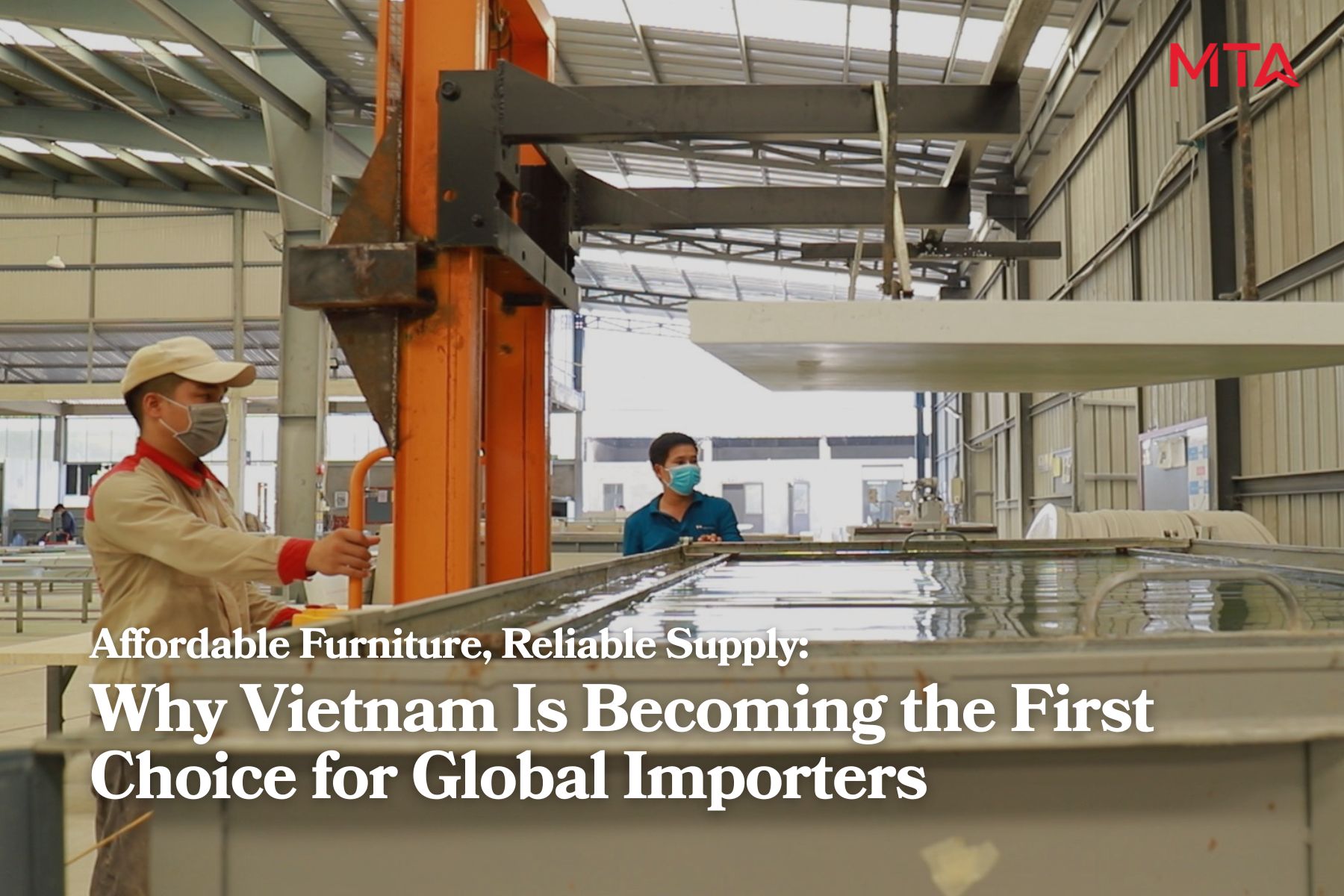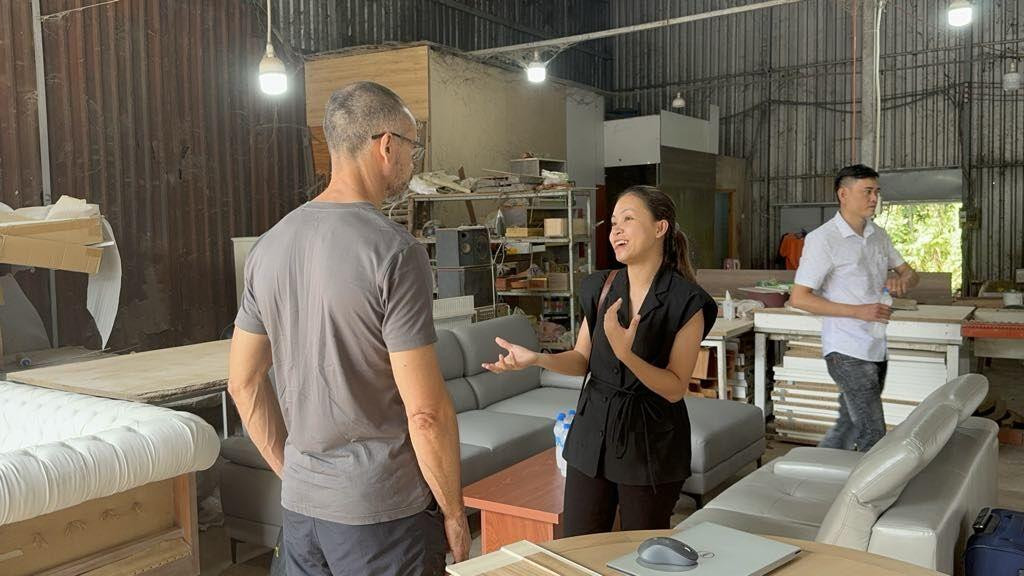In a global market where supply chain stability has become just as critical as cost, Vietnam has rapidly emerged as one of the world’s most attractive destinations for furniture sourcing. For global importers and B2B buyers, the appeal lies not only in affordable pricing, but in the country’s growing reputation for reliability, quality, and export-readiness.
As businesses re-evaluate their sourcing strategies in the wake of the COVID-19 pandemic and geopolitical tensions, Vietnam offers a compelling combination of competitive labor costs, diverse manufacturing capabilities, and a maturing industrial ecosystem that prioritizes consistency and compliance. This article explores why Vietnam is increasingly becoming the first choice — not just a “China Plus One” — for buyers around the world.
A Cost Advantage That Still Matters
Price remains a key driver in global sourcing decisions, and Vietnam continues to deliver a strong value proposition. With average factory wages ranging from $250 to $450 per month — far lower than China, Malaysia, or Eastern Europe — Vietnam offers an undeniable labor cost advantage.
This cost efficiency enables manufacturers to offer affordable furniture across a wide range of categories: from solid wood dining sets and upholstered sofas to outdoor lounges and flat-pack storage units. Vietnam’s manufacturing hubs like Binh Duong, Dong Nai, and Long An are particularly well-equipped to support bulk production at competitive rates, especially for mid-market brands and private label programs.
Yet, what truly distinguishes Vietnam today is that low cost does not equate to low reliability. In this video, we take you inside a modern Vietnamese furniture factory to show exactly how affordable, export-ready products are made. From CNC machining and upholstery lines to container optimization and final inspections — see why Vietnam is becoming the preferred sourcing destination for global buyers.
Reliable Supply in an Uncertain Global Landscape
The disruptions caused by COVID-19, the Russia-Ukraine conflict, and the reconfiguration of trade relations have forced many importers to seek greater supply chain resilience. In this environment, Vietnam has proven itself to be a stable and responsive manufacturing base.
Unlike other low-cost countries that struggle with infrastructure bottlenecks or inconsistent export quality, Vietnam has steadily invested in its logistics capabilities, port infrastructure, and customs efficiency. The deep-sea ports of Cat Lai and Cai Mep now handle high-volume international shipping, while improvements in customs clearance have shortened lead times and reduced administrative delays.
Furthermore, Vietnamese furniture manufacturers are increasingly adopting lean manufacturing practices, ERP systems, and RFID tracking, ensuring better production planning, real-time order visibility, and reduced risk of late shipments.
Rising Standards in Quality and Compliance
Affordability means little without consistent quality, especially for importers working with major retailers or e-commerce platforms. Vietnam’s furniture sector has responded by upgrading both its machinery and quality control systems.
Many top-tier manufacturers now feature:
- CNC machinery for precision woodcutting
- Automated sanding and finishing lines for consistent surface treatment
- PU foam injection and upholstery stations for in-house seating production
- Moisture testing labs to ensure furniture meets international climate standards
Quality certifications such as ISO 9001, FSC, BSCI, and REACH compliance are now common, especially among export-focused factories. These not only validate the technical capabilities of Vietnamese manufacturers but also support sustainability and responsible sourcing initiatives — which are increasingly important for B2B buyers in Europe and North America.
MOQ Flexibility and Sourcing Agility
Another reason Vietnam is gaining favor among global buyers is its flexibility with minimum order quantities (MOQs). While some countries require large volume commitments, many Vietnamese suppliers are open to container-based loading strategies that allow for smaller quantities per SKU, while still optimizing container space.
This is especially valuable for companies testing new product lines, launching private label collections, or managing a broad product assortment for omnichannel sales.
Additionally, many factories in Vietnam are able to support rapid prototyping and customized sampling, reducing the time from design to market — a major advantage in today’s fast-moving retail landscape.

Government Support and Trade Agreements
Vietnam’s government has played a key role in facilitating a stable and business-friendly environment. With a strong focus on industrial growth, the country offers a number of free trade agreements that reduce or eliminate tariffs for buyers in key regions.
Major agreements include:
- EVFTA (EU–Vietnam Free Trade Agreement)
- CPTPP (Comprehensive and Progressive Agreement for Trans-Pacific Partnership)
- ASEAN-China and ASEAN-Korea FTAs
These agreements translate into direct cost savings for importers, improved customs procedures, and stronger legal frameworks to support long-term supplier partnerships.
Factory Tours: Transparency Builds Trust
In an era where transparency and traceability are paramount, Vietnam’s export-ready manufacturers increasingly welcome factory tours — either in-person or virtual. These tours give buyers the chance to observe production lines, assess quality control processes, and understand material sourcing firsthand.
For example, a tour of a vertically integrated factory in Hue might reveal an entire production chain — from local stone and clay extraction to ceramic tabletop casting, sanding, glazing, packaging, and final assembly. This level of visibility helps B2B buyers evaluate real capabilities beyond the catalog, ensuring that promises on paper align with operations on the ground.

Conclusion: A Strategic Choice for Value-Driven Buyers
Vietnam’s rise as a global furniture manufacturing hub reflects more than just competitive pricing. For B2B importers looking for affordable yet dependable supply, Vietnam offers a rare balance — combining low cost with rising quality, scalable production, and stable export performance.
In an era where supply chain reliability is as valuable as cost savings, Vietnam has become more than just a fallback option. It is emerging as the strategic first choice for sourcing furniture at scale — efficiently, affordably, and with confidence.



